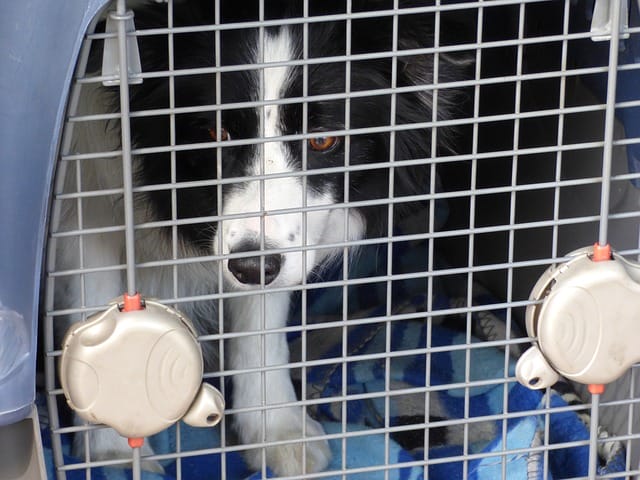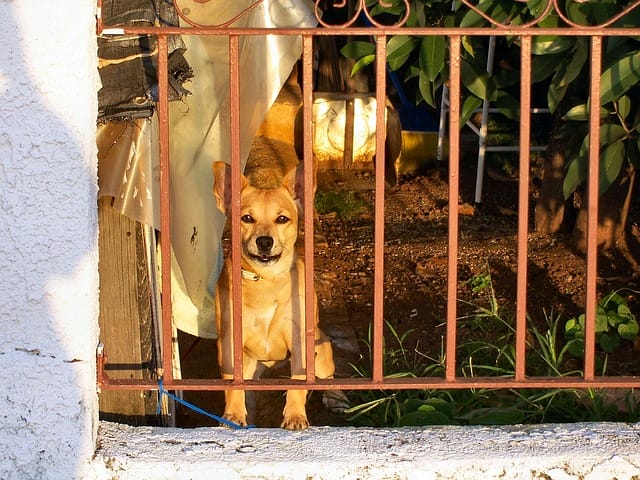
Puppy mill dogs are often mistreated and malnourished. This is because they have been bred to produce a large number of puppies, but their health suffers as a result.
The sale of puppies from puppy mills is a form of animal cruelty that should not be allowed.
Puppies are often born in squalid conditions, without proper veterinary care or food and water for the mother dog.
These pups usually suffer from diseases like parvovirus or something as common as fleas because they never get their shots before being sold to unsuspecting buyers who don’t know any better.
Why You Need To Avoid Puppy Mills
Puppy Mills are breeding facilities where dogs live dismal lives on tight wire cages until they’re old enough to mate every year-and then it starts all over again!
The process leaves them malnourished, riddled with parasites and other illnesses – while also producing more than two million homeless animals each year.
On top of this, puppy mills are not just cruel to dogs, but also pose a threat to public health and safety.
When you purchase a pup from a pet store or online site that sells puppies for cheap prices, you can be sure it came from a Puppy Mill where they are confined by heavy-duty wire cages with little space to move around and no room to engage in natural behaviors.
They are puppies, after all – they need toys, socialization with other dogs, and lots of love—all things that Puppy Mills don’t provide.
The high level of stress from being confined in a small cage can lead them to develop anxiety or mental problems as an adult and can make them more prone to aggression.
When they reach sexual maturity at about 6-8 months of age, they are moved to a puppy mill’s breeding facility where they will be kept in crates until their next heat cycle.
If the mother is unable to produce enough puppies during her lifetime, she’ll be killed.
Dogs sold at pet stores come from puppy mills.

That’s the finding of a new study, which suggests that the popularity of pet stores in Ontario is increasing the number of dogs bred at these large-scale breeding facilities.
In fact, hundreds of thousands of pups sold at pet stores come from puppy mills. “We estimate that approximately 25 percent of dogs sold in pet stores originate from puppy mills, which is a significant number of dogs,” says study co-author Dr. Frank Ascione, professor and head of the Department of Psychology at the University of Denver.
That’s more than 17,000 puppy mill pups sold in Ontario each year.
And it’s not just the number of dogs that is concerning, says Ascione.
It’s the conditions in which these animals are bred and raised that make puppy mills a problem: “We’re talking about massive numbers of animals being kept in small cages for their entire lives with very few social interactions.”
But why are puppy mill dogs sold at pet stores if they’re so bad? “That’s the business.
They keep them a long time in these cages and sell their babies to pet stores because the buyers don’t know what they’re doing, and neither do they,” says Ascione.
The sale of puppy mills should be banned to save the lives of future puppies
Finding homes for shelter animals is a very challenging task, but it’s doubly difficult when breeders don’t make every effort to rehome their current litters.
Animal shelters are overwhelmed with unwanted dogs and cats (and in some cases, other types of animals) that can’t find a home.
Some people think the solution is to stop breeders from selling their puppies to pet stores or directly to consumers as pets.
They want all animal breeding to be done by licensed facilities only and would like these new regulations also to require that once a breeder sells off their puppies, they either can’t get new breeding dogs for six months or they must provide these dogs to local animal shelters.
Animal rights groups have lobbied hard to have breeders of any kind be licensed and regulated by the federal government (the USDA).
They would like all breeders who sell directly to consumers or to pet stores to have a USDA license.
They also want breeders that sell puppies directly to citizens (non-pet stores) to be required by the government to only get replacement dogs for their breeding stock from local shelters and rescue centers.

This would effectively put all dog breeders out of business since they are pretty much all small business owners, especially those who sell directly to the public.
The new regulations would also put a big limit on dog breeding in general and this might have the effect of driving up puppy prices as more people look to purchase puppies from other countries or even steal dogs already owned by citizens, instead of purchasing a purebred puppy.
If you want a dog without contributing to this cruelty, adopt one or buy one directly from a shelter instead.
Also, consider adopting an older dog that has been abandoned by its previous owner if you can’t afford to spend money on a new puppy.
- Essential Oils Safe for Cats: What Every Pet Owner Needs to Know - May 23, 2025
- Herbal Supplements for Cats: A Natural Approach to Cat Wellness - May 21, 2025
- Signs of a Healthy Cat Coat: What Every Cat Owner Should Know - May 19, 2025

